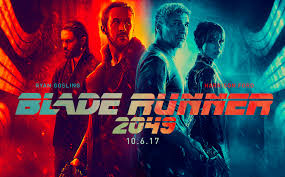The short version? Blade Runner 2049 is better than its predecessor by a wide margin, but will never be remembered due to the one thing it couldn’t do better than the Harrison Ford original: being first.
The long version? Well, that’s going to have massive SPOILERS.
I had a ton of reservations about this film, stemming mostly from the fact that there are rarely ever any good decades-later sequels. In fact, there are even more infrequent sequels that are better than the original film. I held off on this movie until reviews came out, even going so far as to telling my friends that I was actually angry that there were good reviews pouring in. Because it meant that I was wrong. And so, a few weeks later, I went and saw the film last night and it is just as much a wonder as the original.
The primary area that the movie succeeds where the first one failed is in the story. Blade Runner is rife with some narrative issues but prime amongst them is that, for a detective story, there is so very little detective work. In fact, its relegated to one long-winded and boring “Enhance” sequence. Past that, nothing. 2049 course corrects by having K (Gosling) do actual legwork. He hunts for clues, follows leads, reports in with his findings, and makes logic leaps that are backed by actual reasoning. It leads him to a brutal opening fight with Sapper Morton (Dave Bautista), the revelation that a skeleton belongs to a Replicant, to the revelation that he, himself, might not be what he seems, and – eventually – to discover the location of the long missing Deckard (Ford) in a dusty, gorgeous Vegas. There’s tons of stuff I’m leaving out narratively because its better if you see it, but the twists aren’t horribly convoluted and while there is one major Deus Ex Machina moment (or, should I say… Machina Ex Machina?), there isn’t anything horrible, here.
Everyone brings their A-Game on this one, too. Gosling is an incredibly convincing police detective with strife of his own, Ford brings a level of poise that I didn’t expect to an aging, bitter Deckard, and Robin Wright does a magnificent job with an otherwise empty role. But the standouts in this movie are the relatively unknown women. Sylvia Hoeks does such a great job as Luv that Jared Leto’s unapologetically uninteresting approach to her boss, Niander Wallace, is almost completely forgotten, and Ana de Armas as Joi, K’s girlfriend, both give standout performances that are intense, real, and curious to watch unfold. Past that there’s a short cameo from Edward James Olmos as Gaff, reprising his role from the original film, and it’s cute but mostly worthless.
The biggest shame in the acting? Leto’s turn as the primary antagonist is such a weak and bland role. Comparing it to Rutger Hauer’s Roy Batty from the first film is meaningless, since the script never gives us a well-developed villain to be interested in. K’s journey is engaging but the stakes never feel real, both because we spend so little time with the “bad guys” but also because what time we do get is confusing, over-written, and over-acted. But, as I said, Roy Batty is one of the bigger issues with the first Blade Runner – the best character is the bad guy and the main character is bland as hell. This also means that when Ford DOES show back up, he basically gets/has to make the character up from scratch because there wasn’t much to go by, in the first place.
Past this? The visuals and the sound. And man, what a difference 30 years can make. While there are only shades of Vangelis’ original score here and there, the new stuff rom Zimmer and Wallfisch is astoundingly accuracte and – more to the point – more atmospheric that I’d expected. And the sights you get to behold while on this adventure are breathtaking. The city of LA is as dirty and dystopian as it was in the original, but the new locations are amazing. As I’d mentioned, the Vegas scenes are astounding and a wonderful contrast to the darkness of the city. The original film never had much in the way of daylight, but 2049 eschews this while maintaining it. It opens in daylight, but outside of the city’s limits. Any other sun is outside the confines of the grime and the dirt. You could make a claim that it is in these scenes that “Life” is the theme, but to get into that would spoil too much of the film.
The callbacks are few, the tongue-in-cheek references are sparse, and the pace (despite being approximately 45 minutes longer than the first film) never lets you disconnect from the film. There’s always something interesting happening on screen, even in its quieter moments.
While the original film will always be remembered for changing the game and the landscape for science fiction – and, honestly, all of cinema – with its effects, its style, its mood and atmosphere, this film earns a place beside it as not only a better story with more engaging characters, but by building off the very things that make the original such a classic and landmark piece of film history. It won’t be the favorite, in the end, and that’s a shame. Because while Blade Runner 2049 is very clearly not as important a film in the history of movie making, it is so much better as a whole. And, truth be told, its important currently because it’s a high concept, effects driven, smart science fiction film in a franchise that isn’t a retread or soft reboot. It builds off what came before in the proper way. More movies should follow this one’s lead.
But instead I saw a trailer for a new Pacific Rim film before this movie and so I know better.




